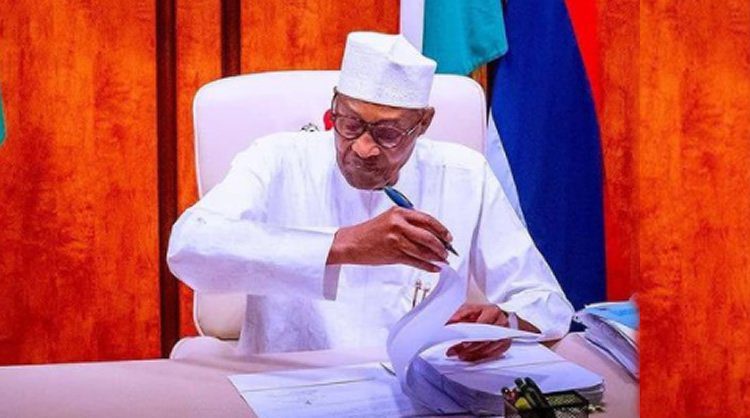
President Muhammadu Buhari claims that the absence of the Petroleum Industry Act has cost the country $50 billion in the petroleum industry since 2011.
This was stated by Buhari today in Abuja at a ceremony commemorating the passing of the PIA, which preceded the Federal Executive Council meeting.
Femi Adesina, the President’s Special Adviser on Media and Publicity, stated this in a release headed, “Nigeria Lost Estimated $50 Billion in Investments in 10 Years Due To Stagnation, Uncertainty Over Petroleum Industry, Says President Buhari.”
According to the President, the loss was caused by the uncertainty surrounding the non-passage of the Petroleum Industry Bill, as well as a lack of progress and stagnation in the petroleum industry, which he attributed to previous administrations’ lack of political will to implement the necessary changes.
According to the President, the signing of the Petroleum Industry Bill on August 16, 2021, will bring an end to decades of uncertainty and underinvestment in Nigeria’s petroleum industry.
“We are all aware that previous administrations have recognised the need to further align the industry for global competitiveness, but there has been a lack of political will to bring this transition to fruition,” he said.
“This lack of advancement has stymied the industry’s growth and our economy’s prosperity. Nigeria has lost an estimated $50 billion in investments over the last ten years as a result of the PIB’s failure to pass.
“This administration thinks that passing the Petroleum Industry Bill in a timely manner will assist our country in attracting investments across the whole oil and gas value chain.
“In light of the value that a solid fiscal framework for the oil and gas industry would provide to our country and investors, our administration has determined that it is vital to cooperate with both houses of the National Assembly to achieve the approval of the PIB.”
Read also: NVBF invited 54 players to a training camp for the 2021 Africa Nations Cup
The bill’s signing, according to the president, is part of the regime’s commitment to developing a competitive and resilient petroleum industry that will attract investment, increase income, generate jobs, and promote the economic diversification strategy.
He went on to say that the PIA was required because Nigeria’s petroleum business is mostly governed by laws enacted more than 50 years ago, such as the Petroleum Act of 1969 and other outdated legislation.
He urged host towns to accept the new legislation, claiming that it would help them in the long run.
“The Act also establishes a direct benefit system to support the long-term growth of Host Communities. I urge the host communities to carefully examine the substance of the Bill, which, if implemented, will provide them with substantial and long-term benefits.
“Furthermore, the Act calls for a purposeful halt to gas flaring, which would help Nigeria meet its Paris Agreement Nationally Determined Contributions by providing a financing mechanism to encourage gas flare out of the project in host communities,” he added.
He asked all key stakeholders to comply and reposition for full activation within 12 months while demanding the prompt execution of the PIA framework.
Timipre Sylva, Minister of State for Petroleum Resources, will lead the implementation team, according to him, and has urged all Ministries, Departments, and Agencies to acclimatize to the transition, which is intended to reorient the economy.
“To reaffirm this administration’s commitment to delivering the law’s value proposition, I’ve approved an implementation structure that will begin immediately to ensure the industry envisioned in the new law takes shape.
“The implementation process, which will be led by the Hon Minister of State for Petroleum Resources, has been given a 12-month deadline to complete the implementation of this legislation. As a result, I am directing all relevant government Ministries, Departments, and Agencies to fully cooperate in guaranteeing the law’s successful and timely implementation,” he stated.
Buhari also commended the 9th National Assembly for passing the bill in a spirit of fraternal cooperation with the Executive.
Dr. Ahmed Lawan, Senate President; Ovie Omo-Agege, Deputy Senate President; Ahmed Wase, Deputy Speaker; and other lawmakers, members of the Federal Executive Council, and Mele Kyari, Group Managing Director of NNPC, were in attendance.